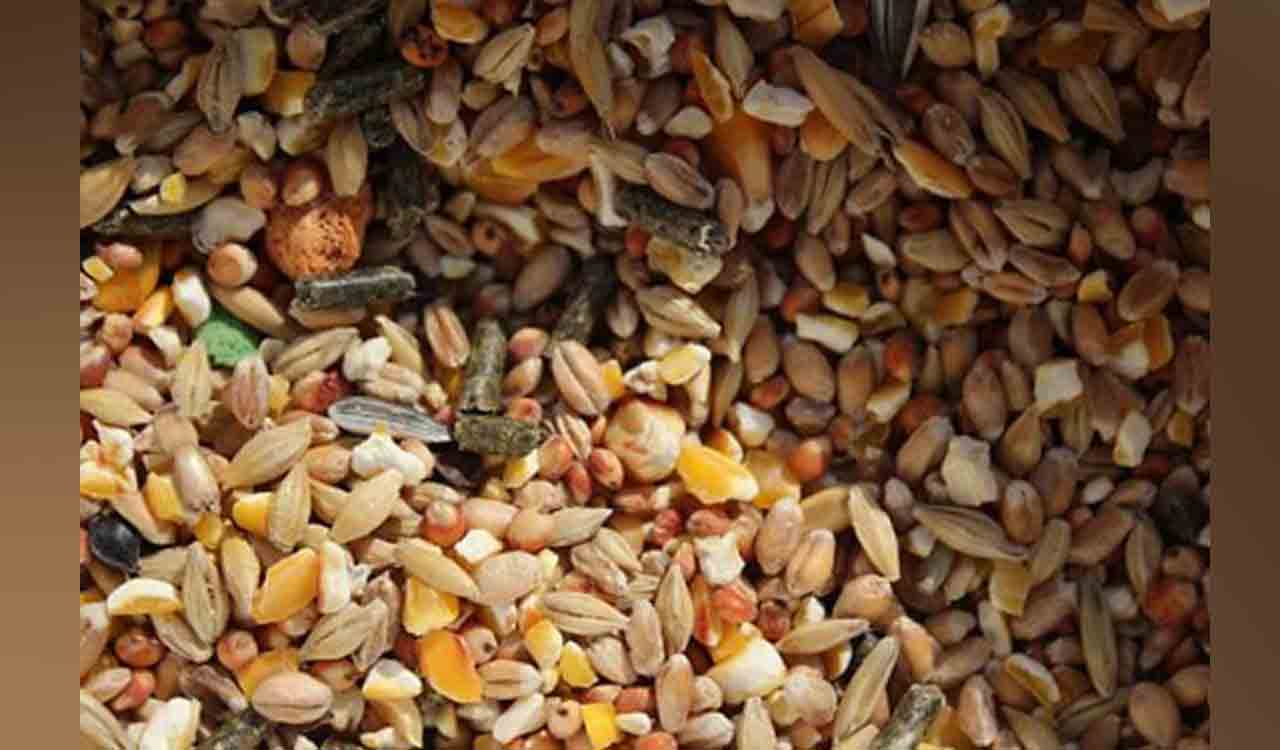India’s agricultural stagnation: How Genetically Modified technology could boost crop yields and global competitiveness
India's agricultural yields remain far below global standards. For instance, while India produces 479 kilograms of cotton per hectare, China achieves 1990 kilograms per hectare.

Over the past two decades, crop production in India has made minimal progress. In 2004, cotton production stood at 470 kilograms per hectare, and by 2024, it had barely shifted, reaching just 446 kilograms. Other crops, such as soybean, showed only modest improvements. In 2010, soybean yield was 1006 kilograms per hectare, increasing to 1200 kilograms by 2024. Oilseed production improved slightly from 1840 kilograms per hectare in 2010 to 1980 kilograms by 2020. Pulses, too, experienced minimal growth, rising from 625 kilograms per hectare in 2010 to just 776 kilograms by 2020.
India’s agricultural yields remain far below global standards. For instance, while India produces 479 kilograms of cotton per hectare, China achieves 1990 kilograms per hectare. Similarly, while the U.S. grows 11,000 kilograms of maize per hectare, India’s yield stands at 6100 kilograms. Brazil’s soybean yield is 3600 kilograms per hectare, compared to India’s mere 1200 kilograms.
This disparity in yields highlights a critical issue: an international conspiracy appears to be preventing the adoption of genetically modified (GM) technology in India, a solution that could boost crop production by 100% to 150%. If India embraces GM technology, it could emerge as a global agricultural leader, producing more at lower costs, and dominating the global agricultural trade. However, misinformation and superstition continue to fuel a smear campaign against GM crops, hindering this progress.
Since 1986, the Indian government has granted approvals and allocated funds for GM research. Many agricultural universities and institutions like the Indian Council of Agricultural Research (ICAR) are conducting research in this field. One notable breakthrough is the development of GM mustard by Dr. Deepak Pental from Delhi University, which holds the potential to significantly benefit Indian farmers by increasing crop production and improving resilience to temperature extremes. GM seeds offer various advantages, such as pest resistance, tolerance to high temperatures and heavy rainfall, and an extended shelf life. These benefits reduce input costs and ultimately increase farmers’ profits.
The Genetic Engineering Appraisal Committee (GEAC), a regulatory body overseeing GM research, operates under the supervision of central government officials and prominent scientists. In today’s globalized economy, where Indian farmers must compete with their international counterparts, the adoption of modern agricultural technologies is vital. Increased crop production is essential, not only for domestic consumption but also for preparing animal feed and ethanol as demand continues to grow with the population.
The agricultural sector requires the same level of investment and technological advancement that has been granted to sectors such as defense and healthcare. In comparison, Indian soldiers use weapons from around the world, and consumers have access to globally manufactured cars, electronics, and medicines. Yet, the agricultural sector remains shackled by outdated policies that prevent the adoption of cutting-edge technology like GM seeds.
China’s farmers, for example, have achieved cotton yields of 1900 kilograms per hectare using GM technology, while American farmers produce 11,000 kilograms of maize per hectare through the use of GM seeds. By contrast, Indian farmers have seen only marginal yield improvements, producing just 450 kilograms of cotton per hectare over the past 20 years. The success stories from China and the U.S. make it clear that GM seeds have the potential to significantly improve yields, reduce costs, and make farming more sustainable.
GM technology offers a range of benefits beyond pest resistance. It helps crops endure harsh weather conditions, such as excessive heat and rainfall. European countries such as France, Germany, and Italy, import millions of tons of cattle feed and meat annually from the U.S. and Brazil, where GM crops are widely cultivated. In India, the government approved GM Bt cotton in 2002, but wider acceptance of GM technology could lead to doubled or even tripled production across various crops.
Despite the promising outlook, opposition to GM technology continues, fueled by misinformation and unfounded fears. It is vital that India’s policymakers focus on promoting advanced agricultural technologies and encouraging investments in the sector, ensuring that Indian farmers can compete on the global stage and enjoy greater profitability.
In conclusion, the potential of GM technology to revolutionize Indian agriculture cannot be ignored. With the right policies and public awareness, India can overcome its agricultural stagnation, enhance crop yields, and secure a stronger position in the global agricultural trade. It is time to move beyond outdated fears and embrace the technological advancements that can lead Indian farmers to success.
P. Chengal Reddy, Advocate and Chief Adviser, Consortium of Indian Farmers Associations (CIFA), Hyderabad.
Email: chengal.p@gmail.com
Related News
-
Cartoon Today on December 25, 2024
3 hours ago -
Sandhya Theatre stampede case: Allu Arjun questioned for 3 hours by Chikkadpallly police
3 hours ago -
Telangana: TRSMA pitches for 15% school fee hike and Right to Fee Collection Act
3 hours ago -
Former Home Secretary Ajay Kumar Bhalla appointed Manipur Governor, Kerala Governor shifted to Bihar
3 hours ago -
Hyderabad: Organs of 74-year-old man donated as part of Jeevandan
3 hours ago -
Editorial: Modi’s Kuwait outreach
4 hours ago -
Telangana HC suspends orders against KCR and Harish Rao
5 hours ago -
Kohli and Smith will be dangerous and hungry: Shastri
5 hours ago




